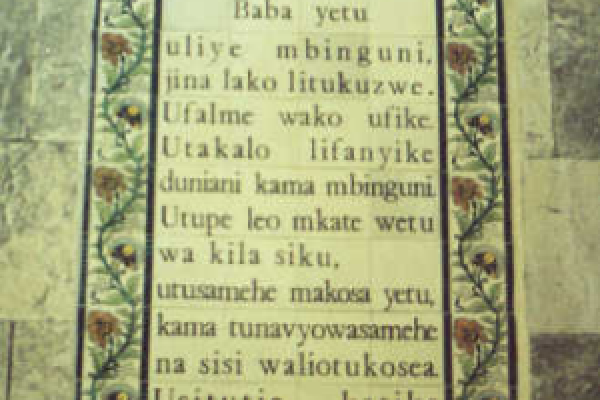
Learn Survival Swahili
Wikitravel users have collectively created a free Swahili phrasebook with the goal of making it possible for travelers to "get by" while traveling in areas where Swahili is spoken.
Wikitravel phrasebooks are available in many languages and each one varies in depth and detail. Most of the phrasebooks include a pronunciation guide, a general phrase list, information about dates and numbers, a color list, transportation-related phrases, vocabulary for shopping and phrases for eating and drinking. Some are even more in depth, and all are free!
From Website
This Swahili phrasebook is not a language tutorial, comprehensive grammar or dictionary. Its goal is to define just enough of the language so that an English-speaking traveller can "get by" in areas where Swahili is spoken.
Swahili or Kiswahili, is the official language of Tanzania (Zanzibar included), Kenya, and Uganda. Swahili speakers can also be found in surrounding countries, such as Burundi, Rwanda, Mozambique, and the Democratic Republic of the Congo (DRC). While only 5-10 million people speak Swahili as their first language, as a second language, there are over 50 million speakers, making it the most widely spoken African language in the world. As a part of the Bantu language family, Swahili is related to a variety of languages from Southern Africa to West Africa. While some Bantu languages, like Xhosa and Zulu are click languages, Swahili does not use clicks, so pronunciation is generally not difficult for English speakers.
Swahili is a Bantu language that serves as a second language to various groups traditionally inhabiting parts of the East African coast. Some Swahili vocabulary is derived from Arabic through more than twelve centuries of contact with Arabic-speaking inhabitants of the coast of Zanj. It also has incorporated Persian, German, Portuguese, English and French words into its vocabulary through contact during the last five centuries. Swahili has become a second language spoken by tens of millions in three countries, Tanzania, Kenya, and DRC, where it is an official or national language. The neighboring nation of Uganda made Swahili a required subject in primary schools in 1992—although this mandate has not been well implemented—and declared it an official language in 2005 in preparation for the East African Federation. Swahili, or other closely related languages, is spoken by nearly the entire population of the Comoros and by relatively small numbers of people in Burundi, Rwanda, northern Zambia, Malawi, and Mozambique. The language was still understood (albeit rarely) in the southern ports of the Red Sea and along the coasts of southern Arabia and the Persian Gulf in the twentieth century.